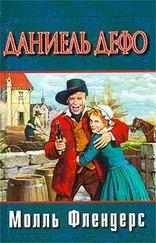Даниэль Дефо - History of the Plague in London
Здесь есть возможность читать онлайн «Даниэль Дефо - History of the Plague in London» весь текст электронной книги совершенно бесплатно (целиком полную версию без сокращений). В некоторых случаях можно слушать аудио, скачать через торрент в формате fb2 и присутствует краткое содержание. Год выпуска: 2014, Издательство: epubBooks Classics, Жанр: Историческая проза, на английском языке. Описание произведения, (предисловие) а так же отзывы посетителей доступны на портале библиотеки ЛибКат.
- Название:History of the Plague in London
- Автор:
- Издательство:epubBooks Classics
- Жанр:
- Год:2014
- ISBN:нет данных
- Рейтинг книги:4 / 5. Голосов: 1
-
Избранное:Добавить в избранное
- Отзывы:
-
Ваша оценка:
- 80
- 1
- 2
- 3
- 4
- 5
History of the Plague in London: краткое содержание, описание и аннотация
Предлагаем к чтению аннотацию, описание, краткое содержание или предисловие (зависит от того, что написал сам автор книги «History of the Plague in London»). Если вы не нашли необходимую информацию о книге — напишите в комментариях, мы постараемся отыскать её.
History of the Plague in London — читать онлайн бесплатно полную книгу (весь текст) целиком
Ниже представлен текст книги, разбитый по страницам. Система сохранения места последней прочитанной страницы, позволяет с удобством читать онлайн бесплатно книгу «History of the Plague in London», без необходимости каждый раз заново искать на чём Вы остановились. Поставьте закладку, и сможете в любой момент перейти на страницу, на которой закончили чтение.
Интервал:
Закладка:
I cannot say but that some such murders were committed, and I think two were sent to prison for it, but died before they could be tried; and I have heard that three others, at several times, were executed for murders of that kind. But I must say I believe nothing of its being so common a crime as some have since been pleased to say; nor did it seem to be so rational, where the people were brought so low as not to be able to help themselves; for such seldom recovered, and there was no temptation to commit a murder, at least not equal to the fact, where they were sure persons would die in so short a time, and could not live.
That there were a great many robberies and wicked practices committed even in this dreadful time, I do not deny. The power of avarice was so strong in some, that they would run any hazard to steal and to plunder; and, particularly in houses where all the families or inhabitants have been dead and carried out, they would break in at all hazards, and, without regard to the danger of infection, take even the clothes off the dead bodies, and the bedclothes from others where they lay dead.
This, I suppose, must be the case of a family in Houndsditch, where a man and his daughter (the rest of the family being, as I suppose, carried away before by the dead cart) were found stark naked, one in one chamber and one in another, lying dead on the floor, and the clothes of the beds (from whence it is supposed they were rolled off by thieves) stolen, and carried quite away.
It is indeed to be observed that the women were, in all this calamity, the most rash, fearless, and desperate creatures. And, as there were vast numbers that went about as nurses to tend those that were sick, they committed a great many petty thieveries in the houses where they were employed; and some of them were publicly whipped for it, when perhaps they ought rather to have been hanged for examples, [142] Hanging was at this time a common punishment for theft. In his novel Moll Flanders, Defoe has a vivid picture of the mental and physical sufferings of a woman who was sent to Newgate, and condemned to death, for stealing two pieces of silk.
for numbers of houses were robbed on these occasions; till at length the parish officers were sent to recommend nurses to the sick, and always took an account who it was they sent, so as that they might call them to account if the house had been abused where they were placed.
But these robberies extended chiefly to wearing–clothes, linen, and what rings or money they could come at, when the person died who was under their care, but not to a general plunder of the houses. And I could give you an account of one of these nurses, who several years after, being on her deathbed, confessed with the utmost horror the robberies she had committed at the time of her being a nurse, and by which she had enriched herself to a great degree. But as for murders, I do not find that there was ever any proofs of the fact in the manner as it has been reported, except as above.
They did tell me, indeed, of a nurse in one place that laid a wet cloth upon the face of a dying patient whom she tended, and so put an end to his life, who was just expiring before; and another that smothered a young woman she was looking to, when she was in a fainting fit, and would have come to herself; some that killed them by giving them one thing, some another, and some starved them by giving them nothing at all. But these stories had two marks of suspicion that always attended them, which caused me always to slight them, and to look on them as mere stories that people continually frighted one another with: (1) That wherever it was that we heard it, they always placed the scene at the farther end of the town, opposite or most remote from where you were to hear it. If you heard it in Whitechapel, it had happened at St. Giles's, or at Westminster, or Holborn, or that end of the town; if you heard it at that end of the town, then it was done in Whitechapel, or the Minories, or about Cripplegate Parish; if you heard of it in the city, why, then, it happened in Southwark; and, if you heard of it in Southwark, then it was done in the city; and the like.
In the next place, of whatsoever part you heard the story, the particulars were always the same, especially that of laying a wet double clout [143] Cloth, rag.
on a dying man's face, and that of smothering a young gentlewoman: so that it was apparent, at least to my judgment, that there was more of tale than of truth in those things.
A neighbor and acquaintance of mine, having some money owing to him from a shopkeeper in Whitecross Street or thereabouts, sent his apprentice, a youth about eighteen years of age, to endeavor to get the money. He came to the door, and, finding it shut, knocked pretty hard, and, as he thought, heard somebody answer within, but was not sure: so he waited, and after some stay knocked again, and then a third time, when he heard somebody coming downstairs.
At length the man of the house came to the door. He had on his breeches, or drawers, and a yellow flannel waistcoat, no stockings, a pair of slip shoes, a white cap on his head, and, as the young man said, death in his face.
When he opened the door, says he, "What do you disturb me thus for?" The boy, though a little surprised, replied, "I come from such a one; and my master sent me for the money, which he says you know of."—"Very well, child," returns the living ghost; "call, as you go by, at Cripplegate Church, and bid them ring the bell," and with these words shut the door again, and went up again, and died the same day, nay, perhaps the same hour. This the young man told me himself, and I have reason to believe it. This was while the plague was not come to a height. I think it was in June, towards the latter end of the month. It must have been before the dead carts came about, and while they used the ceremony of ringing the bell for the dead, which was over for certain, in that parish at least, before the month of July; for by the 25th of July there died five hundred and fifty and upwards in a week, and then they could no more bury in form [144] They could no longer give them regular funerals, but had to bury them promiscuously in pits.
rich or poor.
I have mentioned above, that, notwithstanding this dreadful calamity, yet that [145] Evidently a repetition.
numbers of thieves were abroad upon all occasions where they had found any prey, and that these were generally women. It was one morning about eleven o'clock, I had walked out to my brother's house in Coleman Street Parish, as I often did, to see that all was safe.
My brother's house had a little court before it, and a brick wall and a gate in it, and within that several warehouses, where his goods of several sorts lay. It happened that in one of these warehouses were several packs of women's high–crowned hats, which came out of the country, and were, as I suppose, for exportation, whither I know not.
I was surprised that when I came near my brother's door, which was in a place they called Swan Alley, I met three or four women with high–crowned hats on their heads; and, as I remembered afterwards, one, if not more, had some hats likewise in their hands. But as I did not see them come out at my brother's door, and not knowing that my brother had any such goods in his warehouse, I did not offer to say anything to them, but went across the way to shun meeting them, as was usual to do at that time, for fear of the plague. But when I came nearer to the gate, I met another woman, with more hats, come out of the gate. "What business, mistress," said I, "have you had there?"—"There are more people there," said she. "I have had no more business there than they." I was hasty to get to the gate then, and said no more to her; by which means she got away. But just as I came to the gate, I saw two more coming across the yard, to come out, with hats also on their heads and under their arms; at which I threw the gate to behind me, which, having a spring lock, fastened itself. And turning to the women, "Forsooth," said I, "what are you doing here?" and seized upon the hats, and took them from them. One of them, who, I confess, did not look like a thief, "Indeed," says she, "we are wrong; but we were told they were goods that had no owner: be pleased to take them again. And look yonder: there are more such customers as we." She cried, and looked pitifully: so I took the hats from her, and opened the gate, and bade them begone, for I pitied the women indeed. But when I looked towards the warehouse, as she directed, there were six or seven more, all women, fitting themselves with hats, as unconcerned and quiet as if they had been at a hatter's shop buying for their money.
Читать дальшеИнтервал:
Закладка:
Похожие книги на «History of the Plague in London»
Представляем Вашему вниманию похожие книги на «History of the Plague in London» списком для выбора. Мы отобрали схожую по названию и смыслу литературу в надежде предоставить читателям больше вариантов отыскать новые, интересные, ещё непрочитанные произведения.
Обсуждение, отзывы о книге «History of the Plague in London» и просто собственные мнения читателей. Оставьте ваши комментарии, напишите, что Вы думаете о произведении, его смысле или главных героях. Укажите что конкретно понравилось, а что нет, и почему Вы так считаете.












